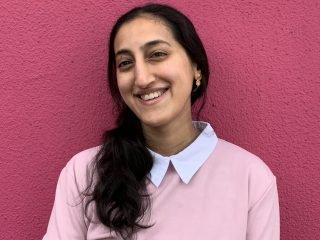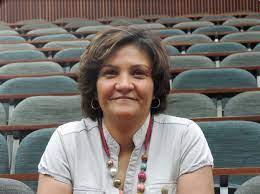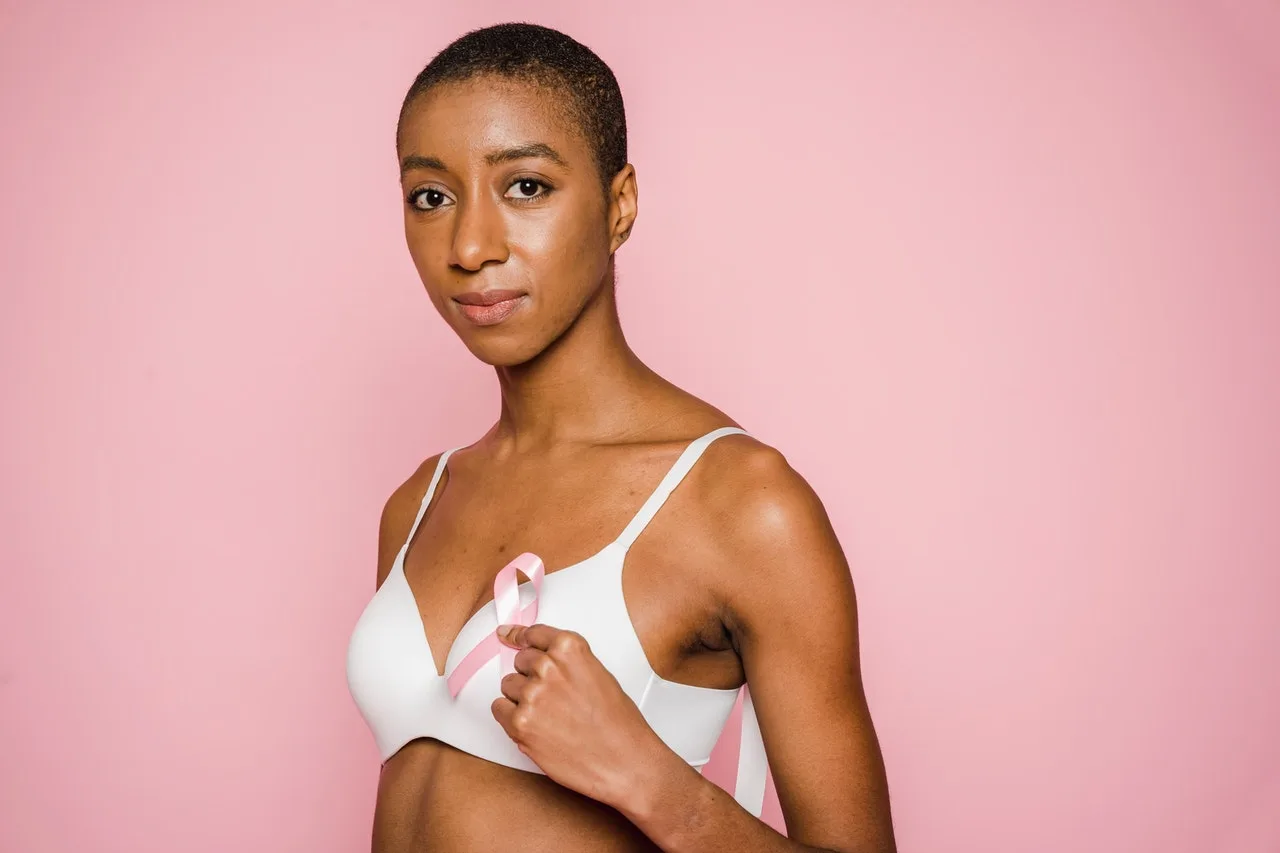We define breast cancer as being in a young patient when the woman is younger than 35 or 40 years of age. While in western societies one in 16 of all women with breast cancer is under 40 years of age, in our practice one in 6 women with breast cancer is younger than 40.
This could possibly be because of the younger age structure of the population in a developing country. However, there is also evidence that breast cancer in non-white populations occurs at an earlier age.
A young woman’s journey with breast cancer
What are the risk factors for breast cancer in younger women?
- Late age at first birth or nulliparity (a woman has never given birth to a child, or has never carried a pregnancy).
- Never having lactated.

Photo by Klaus Nielsen from Pexels
- Early menarche.
- Oral contraceptive use at early ages or of long duration.
- A family history of breast cancer.
- A history of proliferative benign breast disease.
- Unhealthy lifestyle: (specifically: lack of exercise, high-stress levels, alcoholism).
- Having a close family member (mother, sister, or aunt) who was diagnosed with breast cancer before age 50.
- Having a close male blood relative to breast cancer.
Alas, it is currently thought that for young women the genetic component is more important and many young patients are found to have a mutation in their breast cancer genes.
Diagnosis
In younger women, breasts are generally denser. Combined with hormonal changes because of their cycles, the examination can be trickier. The accuracy of mammography is lower in younger than in older women due to the increased density. Screening mammography is not recommended for young women except for those with a significant family history of breast cancer. Therefore, young women tend to present more often with palpable disease, rather than with an abnormality that has been found via a mammogram.
Finding a lump
It is very important that any young woman with a lump should have it fully investigated. Clinical examination along with imaging of the lesion is essential. As mentioned, mammography can be more difficult to interpret in younger women as their breasts are denser. This can, unfortunately, obscure small lesions.
Full-field digital mammography helps though, and the addition of a good ultrasound of the breast in conjunction with fine-needle aspiration or core needle biopsy of the lump will ensure a complete examination. The biopsy sample needs to be microscopically examined to investigate the cells and tissue to determine whether there is a manifestation of the disease before the lump can be accepted as benign.
Treatment
When a younger woman is diagnosed with breast cancer we have to take into consideration the impact of treatment on body image, sexuality, fertility, premature menopause, as well as pregnancy and long-term side-effects of treatment (like the impact on mental functioning and osteoporosis).
Apart from the immediate management of breast cancer which is likely to include a combination of surgery, radiotherapy, chemotherapy, hormonal therapy, and biological treatment, the following issues also need to be considered.
Fertility
Current breast cancer drugs (e.g. chemotherapy) can make some women infertile.
This may not be an issue for women who are beyond child-bearing age or who already have children, but it’s definitely a problem for younger women, who had planned to have children. The impact of the treatment should be discussed before it starts.
Current guidelines for the treatment of breast cancer in the young recommend the use of chemotherapy for all but the earliest cancers and the vast majority of young breast cancer sufferers will have chemotherapy as part of their treatment.
This is an important factor for women, as the chance of suffering premature ovarian failure is as high as around 50% of women who have chemotherapy before the age of 40. After that, the proportion rises rapidly to 95%+.
Lack of age-appropriate treatments
Breast cancer in younger women can be more aggressive than in older women, and treatments are not designed for the younger population. Since young women have more aggressive tumours most guidelines recommend in addition to surgery, they also need chemotherapy.
Hormonal therapy regimens also differ as ovarian function has to be taken into consideration. There has been a success in fine-tuning the treatment, so it has less of an impact on fertility. However, ovarian failure needs to be taken into account, along with an increased risk of miscarriage.
Work and career paths
Prolonged treatment regimens can affect work schedules and daily functioning. This is likely to have more of an impact on younger women.
If possible, younger patients should be treated in a dedicated breast unit, by a multi-disciplinary team that can deal with each case in an individualized fashion – fine-tuning the treatment and taking all the challenges into consideration.
How can family members and friends play a role in supporting a daughter/friend who has breast cancer?
Here are a few tips to help yourself or to guide your loved ones who may be suffering from breast cancer:
- Try to maintain a positive outlook.
- Accept that breast cancer, like many things, is out of your control.
- Try to find or continue with activities that are relaxing.
- Exercise regularly and keep your energy levels up.
- Try to get enough rest and sleep.
- Try to join a support group.
- Keep an eye out for signs of depression. Chat to your healthcare provider early so that help can be arranged.
Who are the authors?
Dr. Fatima Hoosain

Dr. Fatima Hoosain
Dr. Fatima Hoosain is a specialist surgeon. She enjoys all aspects of General Surgery, with a particular interest in breast and thyroid health. This includes surgery for the breast, thyroid, and soft tissue tumours.
Dr. Hoosain graduated with an MBChB from the University of Stellenbosch in 2009. She subsequently specialised in General Surgery, and qualified with an FCS (SA) and MMed (Surg) in 2019. She has been involved in the publication of several journal articles.
Dr. Hoosain is also a member of the Breast Interest Group of South Africa (BIGOSA), the Association of Surgeons of South Africa (ASSA), the Surgical Research Society of South Africa (SRS) and the South African Colorectal Society.
Dr. Karin Baatjes

Dr. Karin Baatjes
Dr. Karin Baatjes is a specialist surgeon, with an interest in Breast Health.








![women [longevity live]](https://longevitylive.com/wp-content/uploads/2020/01/photo-of-women-walking-down-the-street-1116984-100x100.jpg)









